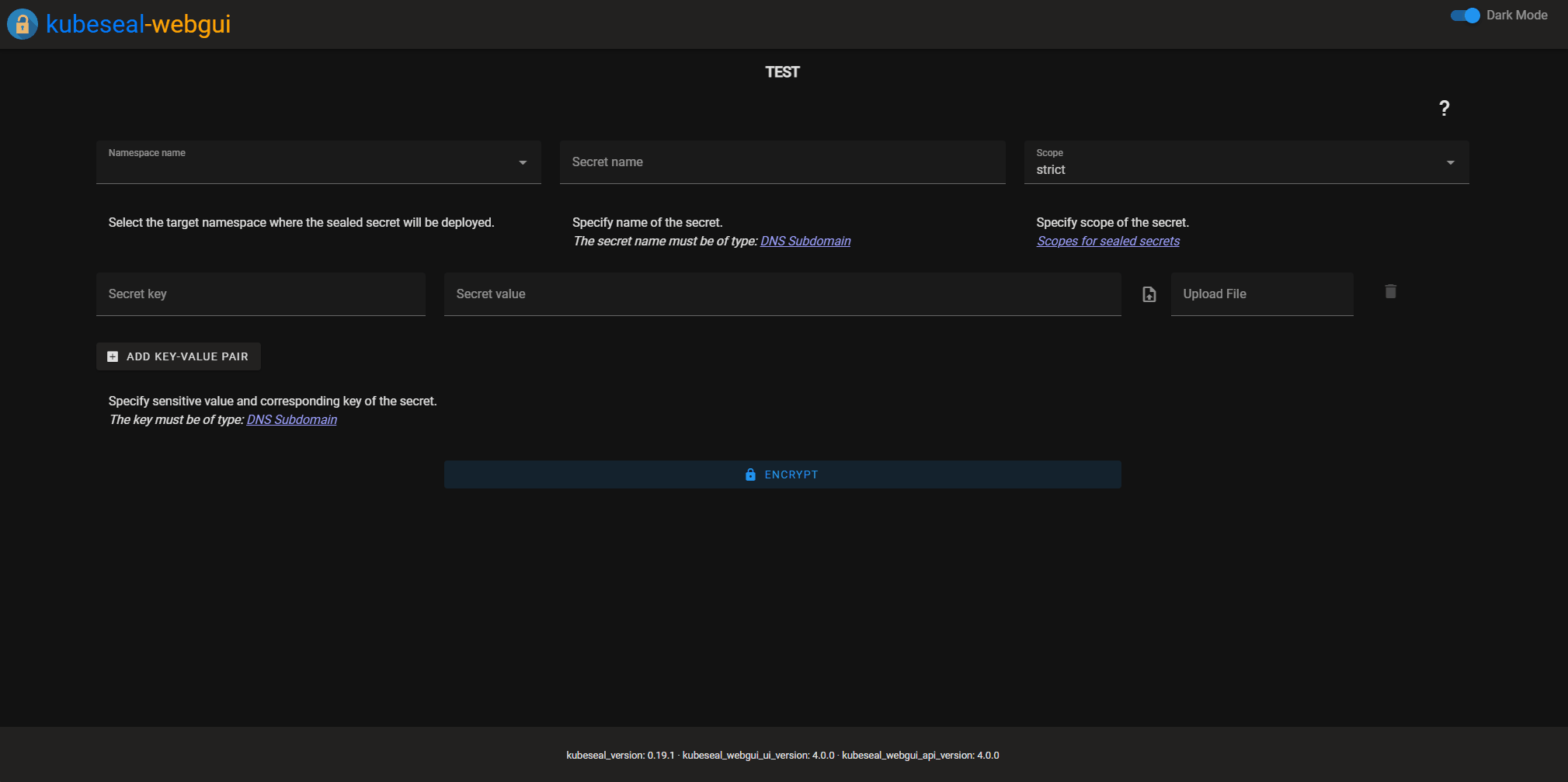This is a python based webapp for using Bitnami-Sealed-Secrets in a web-gui.
This app uses the kubeseal binary of the original project: https://github.com/bitnami-labs/sealed-secrets
Currently using version 0.19.1 of the kubeseal-binary.
The docker image can be found here: https://hub.docker.com/repository/docker/kubesealwebgui/kubeseal-webgui
To use this Web-Gui you have to install Bitnami-Sealed-Secrets in your cluster first!
You can use the helm chart which is included inside this repository to install kubseal-webgui.
helm repo add kubesealwebgui https://jaydee94.github.io/kubeseal-webgui/
helm repo update
# Make sure to configure all required values (with helm's --set argument) documented in our helm Chart before installing.
helm install kubesealwebgui/kubeseal-webgui --set example_required_value="foobar"Mount the public certificate of your sealed secrets controller to /kubeseal-webgui/cert/kubeseal-cert.pem in the Docker container.
Please use the helm chart which is included in this repository.
When upgrading to 2.1.0 make sure that you also update the helm chart for installing kubeseal-webgui.
The application reads namespaces from current kubernetes cluster and needs to have access to list them.
If your default serviceaccount has this RBAC rule already you could disable serviceaccount.create in the values.yaml of the helm chart.
When upgrading to 3.0.X you dont need to deploy a ingress route to the api. The nginx serving the ui will proxy the requests to the api.
You can use the new helm chart located inside the chart folder to deploy the new kubseal-webgui version.
(Login to your kubernetes cluster first)
kubeseal --fetch-cert --controller-name <your-sealed-secrets-controller> --controller-namespace <your-sealed-secrets-controller-namespace> > kubeseal-cert.pem
- Make sure you have Python 3.9 installed.
- Clone this repository and run
cd api. python3 -m venv venv(to create a virtual environment calledvenvthat doesn't interfere with other projects)source venv/bin/activate(to activate the virtual environment)python -m pip install .(to install all required packages for this project)pytest(should run all tests successfully)
-
Running uvicorn server
MOCK_ENABLED=true uvicorn kubeseal_webgui_api.app:app
or use a container and set the environment variables there
docker build -t api -f Dockerfile.api . docker run --rm -t \ -p 5000:5000 \ -e MOCK_ENABLED=TRUE \ -e KUBESEAL_CERT=/tmp/cert.pem \ api
- Clone this repository and run
cd ui. - You can either use
yarnornpmfor the following commands. yarn installto install all dependenciesnpm installto install all dependencies
yarn serveto compile and start HTTP server onport 8080with hot-reloads for developmentnpm run serveto compile and start HTTP server onport 8080with hot-reloads for development





